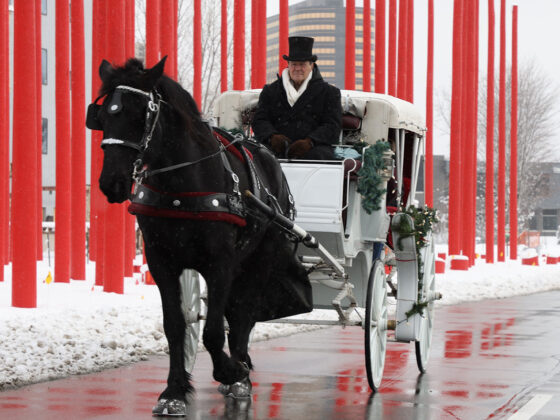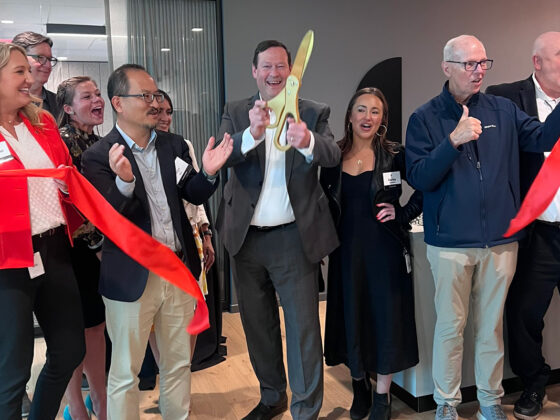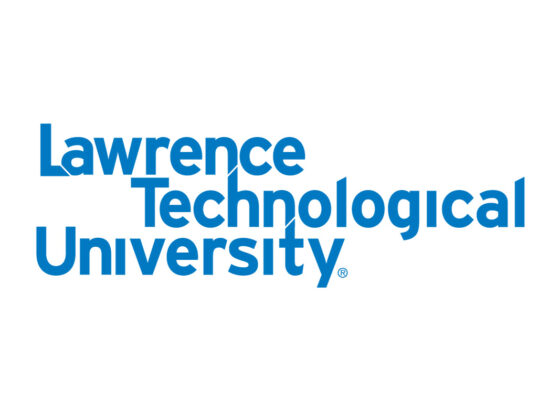Lawrence Technological University will host back-to-back conferences on the digital humanities: Network Detroit: Digital Humanities Theory and Practice, on Friday, Sept. 27, and the Great Lakes THATCamp 2013 (the Technology and Humanities Camp) on Saturday, Sept. 28.
Digital technology has already revolutionized scholarship and research in the humanities, and now portable computers such as ipads are changing the way future college students interact with literature at a very young age.
Network Detroit: Digital Humanities Theory and Practice will highlight digital humanities projects in the region and involve undergraduates, graduate students and university faculty. Museum archivists, publishing executives, scholars and teachers will report on the state of digital humanities projects and practices in their fields.
For a full schedule of the conference and registration information, visit www.detroitdh.com.
The keynote speaker will be Ethan Watrall, associate director of Michigan State University’s MATRIX: Center for Digital Humanities and Social Sciences and director of the Cultural Heritage Informatics Initiative. He is an assistant professor in MSU’s Department of Anthropology.
Network Detroit participants will include representatives from the Detroit Institute of Arts, the Charles H. Wright Museum of African-American History, the Henry Ford Museum, the Detroit Historical Society, Gale-Cengage Learning, Houghton Mifflin Harcourt, Microsoft, the University of Michigan (Ann Arbor, Dearborn and Flint), Wayne State University, Hope College, Saginaw Valley State University, Mott Community College, Yale University and the University of Toledo.
On Sept. 28, Lawrence Tech will host Great Lakes THATCamp 2013, a hands-on “unconference” for networking, planning, and building digital humanities projects. For information and registration, visit www.2013.greatlakesthatcamp.org/.
Scholars at the Roy Rosenzweig Center for History and New Media at George Mason University created the camp in 2008. In 2010, Watrall created a regional spin-off, the Great Lakes THATCamp, which will be hosted by Lawrence Tech for the first time.
“This puts Lawrence Technological University on the digital humanities map in a major, not a minor way,” said Associate Professor Melinda Phillips of LTU’s Department of Humanities, Social Sciences, and Communication (HSSC), which is sponsoring the two events.
Phillips initiated the conference at LTU with Assistant Professor Lior Shamir of LTU’s Department of Mathematics and Computer Science and Adjunct Professor Nathan Kelber, a University of Maryland PhD candidate in English and the digital humanities, who lives in Michigan and teaches English at LTU.
Tentative plans at LTU call for the creation of the Detroit Center for Digital Humanities and the introduction of a concentration in digital humanities by fall 2014. Phillips has been exploring the potential of digital humanities ever since she attended the annual meeting of the Association of Departments of English at Stanford University in 2011.
“My goal all along has been two-fold,” said Phillips, who recently stepped down as HSSC department chair. “First, to educate the Lawrence Technological University community, students and faculty about the digital humanities, and second, to connect students to interesting digital humanities projects.”
“For those of us who teach the humanities,” Phillips said, “the essential challenge is engaging our post-modern, 21st-century ‘techie’ students in difficult texts that can be alien from their own experiences. I think the digital humanities is particularly suited to our type of students at LTU. It is a way to draw them in. …
“Our goal in the humanities is to teach students how to be careful, thoughtful, critical readers, writers, thinkers and speakers. We also want students to understand themselves in the context of the human timeline. The digital humanities is more than just computers in the classroom, it is using computers to ask new questions of texts so as to expose patterns and relationships among texts that do not become visible by just reading them in print form.”
Lawrence Technological University, www.ltu.edu, is a private university founded in 1932 that offers more than 100 programs through the doctoral level in its Colleges of Architecture and Design, Arts and Sciences, Engineering, and Management. PayScale lists Lawrence Tech among the nation’s top 7 percent of universities for return on undergraduate tuition investment, and highest in the Detroit metropolitan area. Lawrence Tech is also listed in the top tier of Midwestern universities by U.S. News and World Report and the Princeton Review. Students benefit from small class sizes and experienced faculty who provide a real-world, hands-on, “theory and practice” education with an emphasis on leadership. Activities on Lawrence Tech’s 102-acre campus include over 60 student clubs and organizations and a growing roster of NAIA varsity sports.






